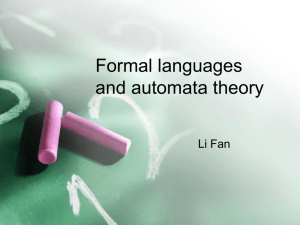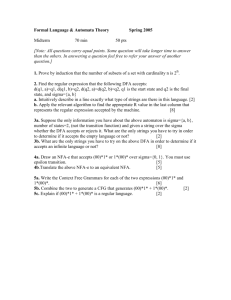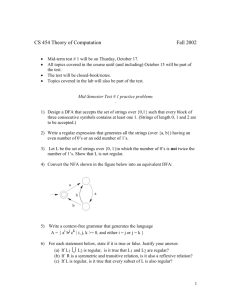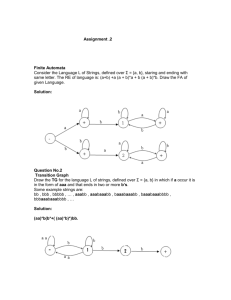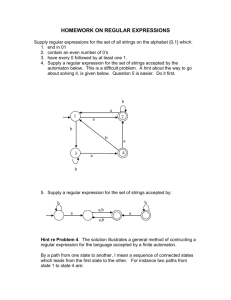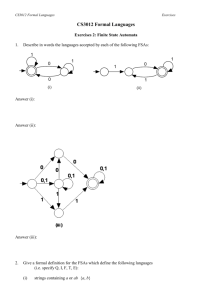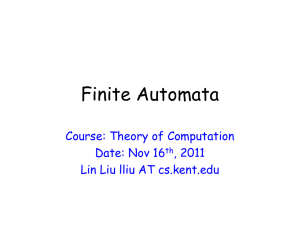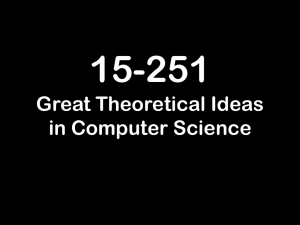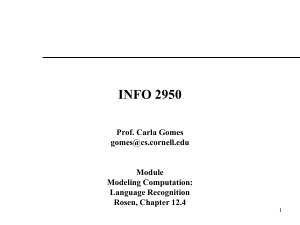COMP 181 Models of Languages and Computation Spring 2001 Mid
advertisement
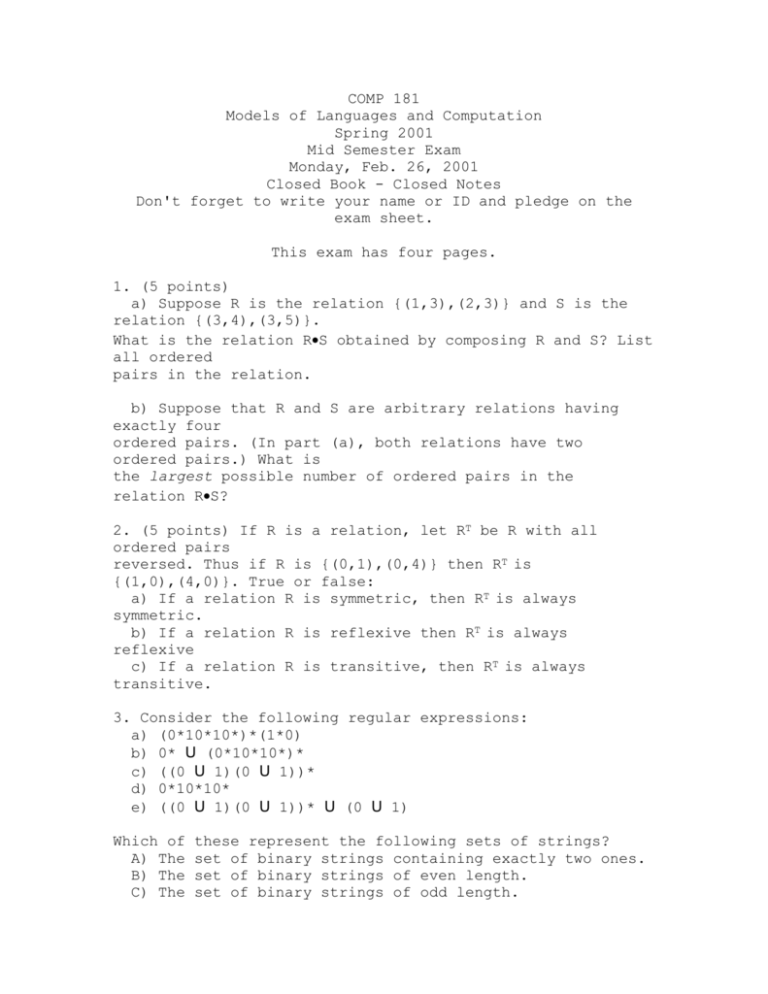
COMP 181
Models of Languages and Computation
Spring 2001
Mid Semester Exam
Monday, Feb. 26, 2001
Closed Book - Closed Notes
Don't forget to write your name or ID and pledge on the
exam sheet.
This exam has four pages.
1. (5 points)
a) Suppose R is the relation {(1,3),(2,3)} and S is the
relation {(3,4),(3,5)}.
What is the relation RS obtained by composing R and S? List
all ordered
pairs in the relation.
b) Suppose that R and S are arbitrary relations having
exactly four
ordered pairs. (In part (a), both relations have two
ordered pairs.) What is
the largest possible number of ordered pairs in the
relation RS?
2. (5 points) If R is a relation, let RT be R with all
ordered pairs
reversed. Thus if R is {(0,1),(0,4)} then RT is
{(1,0),(4,0)}. True or false:
a) If a relation R is symmetric, then RT is always
symmetric.
b) If a relation R is reflexive then RT is always
reflexive
c) If a relation R is transitive, then RT is always
transitive.
3. Consider the following regular expressions:
a) (0*10*10*)*(1*0)
b) 0* U (0*10*10*)*
c) ((0 U 1)(0 U 1))*
d) 0*10*10*
e) ((0 U 1)(0 U 1))* U (0 U 1)
Which of
A) The
B) The
C) The
these represent the following sets of strings?
set of binary strings containing exactly two ones.
set of binary strings of even length.
set of binary strings of odd length.
D) The set of binary strings containing an even number of
ones.
E) The set of binary strings containing an odd number of
ones.
4. (10 points) Consider the following sets of strings:
a) {x є {0,1}* : x has an even number of zeroes}
b) {x є {0,1}* : x has an odd number of zeroes}
c) {x є {0,1}* : x has even length}
d) {x є {0,1}* : x has odd length}
For each of the following finite automata M, state which
set of strings
above is L(M):
A)
B)
C)
D)
5. (10 points) Consider the following nondeterministic
finite automaton
M :
Which of the following automata are both deterministic and
equivalent
to M?
a)
b)
c)
d)
6. (10 points) Consider the following proof:
Theorem. Suppose M is a nondeterministic finite
automaton. Let MT
be identical to M except that the accepting and nonaccepting states of MT
have been switched; that is, a state q is an accepting
state of MT exactly
when q is not an accepting state of M. Let Σ be the input
alphabet of M
and MT. Then L(MT ) = Σ* - L(M).
Proof. Consider a word x є Σ*. Suppose M accepts x. Then
there is a
computation starting from the start state of M, leading to
an accepting
state r of M. The same computation will lead to the state r
of MT, but r is
not an accepting state of MT. Therefore MT does not accept
x.
Similarly, if M does not accept x, then there is a
computation leading
from the start state of M to a non-accepting state t of M.
Since t is a
non-accepting state of M, t is an accepting state of MT.
Therefore MT accepts
x. Therefore, MT accepts x exactly when M does not accept
x, so
L(MT) = Σ* - L(M).
Is this proof correct? If so, say why.
not.
If not, say why
7. Suppose M1 and M2 are deterministic finnite automata. Is
there
always a deterministic finite automaton M such that L(M) =
L(M1)-L(M2),
that is, M accepts a word exactly when M1 accepts the word
and
M2 does not accept the word. Justify your answer briefly.
